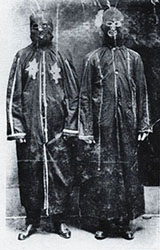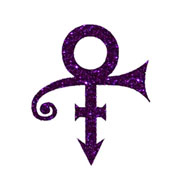This blog has been fallow for six months. I regret the silence, but not the reasons. I’ve gotten involved in three local nonprofits, including one whose leadership asked me to help them write a book. Theirs is the sort of worthwhile project a history-writer dreams about, I’m working with good people, and I can’t wait until we share the book with our neighbors and the world in 2020.
In the meantime, beyond my little bend in the river, I see authors, readers, and scholars apparently losing their minds. A week ago, young-adult author Sarah Dessen took exception to a college student who disparaged her work in a South Dakota newspaper in 2016. Dessen began to insult the kid on Twitter and drew forth an online mob of readers, authors, and publishers who joined her in harassment and intimidation.
 Not content to let publishing win the Worst Industry of the Week award, the student’s alma mater, Northern State University, tweeted a craven apology, choosing to suck up to a bestselling author rather than defend―or even ignore―one alumna who said what she thought of a book.
Not content to let publishing win the Worst Industry of the Week award, the student’s alma mater, Northern State University, tweeted a craven apology, choosing to suck up to a bestselling author rather than defend―or even ignore―one alumna who said what she thought of a book.
Why were people invested in the young-adult fiction industry, which rakes in more than $3 billion a year, so quick to pounce on a lone, unknown student who expressed her taste in literature three years ago? Perhaps some readers and authors, living by expired cultural templates, can’t yet fathom that they stand in the mainstream and no longer wield the moral authority of underdogs. It may be meaningful that the loudest voices representing young-adult literature on social media aren’t adolescents but thin-skinned adults. Too many aspiring writers are also so keen to feel collegial with big-name authors that they’re inclined to join an author’s side, eager for the righteous rush of communal fandom. No doubt it’s corrupting for authors to have fans who look to them for meaning and purpose beyond what their books can provide. Fame, wealth, and flattery are disastrous in realms far beyond politics.
* * *
People who write and read are also, I’m finding, more put off by strange, skewed, and unsanctioned thoughts than they used to be.
Decades ago, my middle-school interest in superhero comics eventually led me to pick up, every Friday for years, the weirdest indie comics on the shelves. The best and most engaging parts were the readers’ letters and rambling editorials. They read like the spillover from a mental storage unit packed to the ceiling with marginal notions and contrarian whims. We could regard the contents with amusement, step over them with discomfort, or root through them for our own purposes.
Delightfully, those commentaries didn’t slide smoothly into mylar bags of ideological simplicity. Their philosophical quirkiness would confuse and annoy today’s fans. In the past week, I’ve seen commentators and reporters react with confusion and annoyance to a 2017 interview with Alan Moore, the writer behind Watchmen, V for Vendetta, and other weirder, darker comics that somehow found homes with mainstream publishers in the ’80s. In the interview, Moore disavows his most famous work and warbles a rhapsody of challenging ideas:
What was the impact of popular heroes comic books in our culture? Why are people fascinated by alternative realities?
I think the impact of superheroes on popular culture is both tremendously embarrassing and not a little worrying. While these characters were originally perfectly suited to stimulating the imaginations of their twelve or thirteen year-old audience, today’s franchised übermenschen, aimed at a supposedly adult audience, seem to be serving some kind of different function, and fulfilling different needs. Primarily, mass-market superhero movies seem to be abetting an audience who do not wish to relinquish their grip on (a) their relatively reassuring childhoods, or (b) the relatively reassuring 20th century. The continuing popularity of these movies to me suggests some kind of deliberate, self-imposed state of emotional arrest, combined with an numbing condition of cultural stasis that can be witnessed in comics, movies, popular music and, indeed, right across the cultural spectrum. The superheroes themselves – largely written and drawn by creators who have never stood up for their own rights against the companies that employ them, much less the rights of a Jack Kirby or Jerry Siegel or Joe Schuster – would seem to be largely employed as cowardice compensators, perhaps a bit like the handgun on the nightstand. I would also remark that save for a smattering of non-white characters (and non-white creators) these books and these iconic characters are still very much white supremacist dreams of the master race. In fact, I think that a good argument can be made for D.W. Griffith’s Birth of a Nation as the first American superhero movie, and the point of origin for all those capes and masks.
I love this: never-asked questions about why adults are now so enamored of power fantasies developed for adolescent boys; a swipe at extruded corporate entertainment products; a wistful ode to creators’ rights voided by work-for-hire contracts; a non-sequitur jab at gun owners; and a call to comics fans to think about the historical and sociological implications of superheroes. People who can’t laugh off these notions, mull them over, or counter them might do well to ask themselves why they hold their positions on popular culture as closely as religious dogma.
 And yet I doubt that superheroes “are still very much white supremacist dreams of the master race,” and it’s too clever by half to claim that Birth of a Nation was “the first American superhero movie.” So what? Overstating causation doesn’t exclude the possibility of a connection. The creation of masked superheroes who operate outside or above the law overlaps with the era of the Klan’s masked “night riders” and comes not long after the raids of masked, costumed vigilantes in the “tobacco wars” in Kentucky and Tennessee (shown in the photo to the left).
And yet I doubt that superheroes “are still very much white supremacist dreams of the master race,” and it’s too clever by half to claim that Birth of a Nation was “the first American superhero movie.” So what? Overstating causation doesn’t exclude the possibility of a connection. The creation of masked superheroes who operate outside or above the law overlaps with the era of the Klan’s masked “night riders” and comes not long after the raids of masked, costumed vigilantes in the “tobacco wars” in Kentucky and Tennessee (shown in the photo to the left).
Looking for the roots of American superheroes in a masked vigilante tradition may or may not pan out, but the idea is arguable. And even if he’s wrong here, in whole or in part, thank goodness for cranky old Alan Moore—because man, that’s a mind forever voyaging.
* * *
 But then sometimes, complexity and ambiguity overwhelm those who work isn’t given to clarity. In September, the International Society of Anglo-Saxonists fell apart over the place of “Anglo-Saxon” in the organization’s name and in scholarship in general. Amid debates about the term, which is used by racists and white supremacists outside of academia, members on both sides quit in disgust, and the organization is now nameless.
But then sometimes, complexity and ambiguity overwhelm those who work isn’t given to clarity. In September, the International Society of Anglo-Saxonists fell apart over the place of “Anglo-Saxon” in the organization’s name and in scholarship in general. Amid debates about the term, which is used by racists and white supremacists outside of academia, members on both sides quit in disgust, and the organization is now nameless.
The name change strikes me as surrender to racists, who will only appropriate whatever term of art the scholars of early medieval England choose next. When I went looking for reasoned arguments from both sides, I didn’t make it past scholars on Twitter accusing each other of bad faith and bickering over who’s doing more “antiracist work.” (I’m not going to link to their babyish squabbles.)
I’ve been writing about medieval history for 20 years, and for a decade of that time I taught medieval literature, but the online arguments among medievalists about anti-racist activism remind me of a more modern moment: Gonzo in The Muppet Movie traveling to Bombay to become a movie star because you go to Hollywood only “if you want to do it the easy way.” While everyone is capable of doing good in their own classrooms, cubicles, or cul-de-sacs, if your believe your primary vocation is to smash racism but you became a professor of medieval literature or history…well, I just hope a bear and a frog in a Studebaker give you and your chicken a lift.

Six month wait?
Worth it!
So glad to “see” you, and every iota of this post is … I hope I won’t get in trouble if I say “super” …
LikeLike
Thanks, Diane! I’m glad you stopped by. I’m hoping to write more regularly again, and this post was a good chance for a little venting…
LikeLike
I agree with Jennifer Weiner that genre fiction for women should be valued equally with genre fiction for men, so if I’m ever asked about putting, oh, Run Silent, Run Deep on the Common Read, I’ll vote No. (Which is not to say that isn’t worth reading.) And I don’t know that I’ve ever quite got the point of YA fiction. The library a few blocks away from my childhood home had a Young Adult shelf. I wasn’t sure who it was meant for–those newly graduated from high school or college? I don’t think I drew on it much.
Paul Fussell once wrote an essay called “The ABM: The Author’s Big Mistake”, about authors’ letters replying to bad reviews. No doubt such can be done well, but Fussell was right that most or nearly all are not. Ms. Dessen should live long enough to have things said about her that as hard as some that have been said about, oh, Shakespeare.
I think Mr. Moore is onto something. One sees aspects of the clinging to adolescence in the outbursts of misogyny in the gaming world. I don’t know that it has anything to do with the 20th vs. the 21st Century. But in 1910 few enough had the power to make their opinions heard beyond the neighborhood. The peevish narrator of the Cyclops chapter of Ulysses didn’t have a blog, did he?
As for for the society that must not be named, I offer the suggestion “Earls and Churls” (or should that be “Eorls and Ceorls”?–the household Sweet is upstairs). But that might lead us into difficulties with classism.
LikeLike
Thanks for stopping by, George! I would gladly vote for “Earls and Churls,” although somebody will surely complain that the binary implicit in the name is far too constricting.
I don’t much care if people enjoy YA fiction, superhero movies, or what have you, but I do find it odd and a little sad when those are the only things an adult watches or views. At this point, however, I wonder how many young adults even read young-adult fiction. If the publishing industry ever gets competent at market research, I’d want to see those numbers. (I also think the term “young adult” is humorously quaint—like calling a fussy nine-year-old in a suit a “little gentleman.”)
As for comic-book superheroes, my opinion is clouded by the fact that I associate most of those characters and their mythos with middle school, a time I’m not eager to relive or recall.
LikeLike
Jeff, I know some middle-aged people who like reading Young Adult novels because they have a clear story, a manageable length, are not too complicated, and place some things off limit.
I watch academics with magazine columns scolding each other that they need to pay attention to their students’ models of the world and encourage them to engage actively with the material, not commit the anathemized heresies of lectures and the Deficit Model. If not as many people as we thought remember why centralized surveillance and censorship of communications is bad, or why historians are skeptical of grand narratives and Laws of History, that is an educational opportunity much more urgent than moving the frontiers of scholarship a micron outwards or telling their fellow travellers on twitter that a naughty person said a bad thing! Just because something is old hat in your field does not mean that there are not a lucky 10,000 (XKCD 1053) learning it for the first time today.
But to reach that wider public we have to accept that we are not teaching to students stuck in our class for a semester who need at least a B- to keep their scholarship, we are engaging with people who know some things we do not but not some things we do, and we need to convince them that we have something to offer.
LikeLike
Sean, I’ll confess I’m not quite sure what specifically you’re responding to, but feel free to clarify!
LikeLike
Jeff, YA novels came up in the comments.
I guess I see humanists get up in front of their virtual podiums and declare that something is BAD and OUTDATED and expect the world to nod politely and agree (after, all they are scholars and can tell people posting skeptical responses to go read “the literature”). I just don’t think that will work for people of ill will (the hatred comes before the rationalizations) or for people who don’t remember how Marx or Kondratiev seemed so compelling in their day but turned out to be products of their time, or why the idea of eternal nations proved to have some downsides which were more obvious in 1945 than 1895. You have to walk people through that, and that takes time and effort by both sides.
And the pedagogy they use in the assembly is the pedagogy they scorn in the classroom.
LikeLike
Most academics used to politely ignore the weird stuff from outside the university, and the under-resourced voices shouting that a lot of people believed in this stuff and it was tied up in all these other nasty things (just like they ignored the senior colleagues writing ideas out of the 1850s). That was more gentle and tolerant but it might not have been the right choice.
But I am not sure that the kind of language I see in political magazines for academics and twitter accounts, which preaches THE TRUTH mixing things which were established a hundred years ago with things which are very controversial, is the right choice either.
The more pedagogical, conversational approach I prefer requires more work and accepting that what many people will take away is “some academics see this differently than I do and they talk about reasons A, B, C.”
LikeLike
I think we’re in broad agreement on quite a few things, Sean. As it turns out, though, I haven’t taught or had a university affiliation in ten years, and I likely never will again, so I’m reacting from a place of greater detachment. And that’s really all I can do: react. I prefer your more reasoned and disciplined approach, and students will be better off when it’s back in vogue.
LikeLike
One of the interesting, odd things about George’s comment is that Sarah’s father taught Shakespeare at Chapel Hill! I knew there had been a flap but hadn’t looked to see. Eons ago, I did an event with her and others…
Sounds like a sad event. I suppose that obscurity as a writer helps protect from such things! Or maybe it’s just modesty.
Alan Moore was asked a squishy, softball question and threw a bomb back! While I don’t buy all he said, it’s certainly entertaining. I like your “forever journeying” business.
My husband said, “The term ‘scholars on twitter’ is hilarious!”
LikeLike